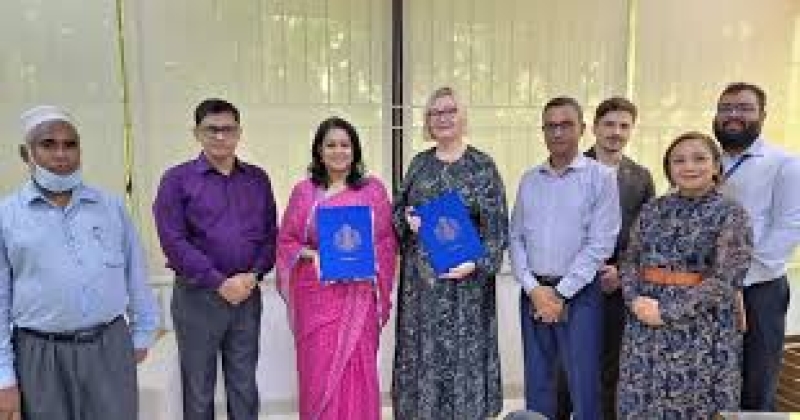- 94 Palestinians killed in Gaza, 45 people at aid sites |
- Opening of UN rights office at talk stage: Foreign Adviser |
- AC Tabassum Urmi sacked over anti- govt Facebook posts |
- Bangladeshi killed in BSF firing at Chuadanga border |
- Rains Fuel Disasters in 83pc of Brazilian Cities: Report |
Bangladesh, Sweden Sign Deal on Climate, Biodiversity

Bangladesh and Sweden have signed a grant agreement to implement a new project aimed at strengthening Bangladesh’s resilience to climate change and enhancing biodiversity protection.
The project, funded by Swedish International Development Cooperation Agency (SIDA), will support the Ministry of Environment, Forest and Climate Change, the Department of Environment (DoE), and the Bangladesh Forest Department (BFD) in improving natural resource management and climate resilience.
Environment Advisor Syeda Rizwana Hasan said the project will play a vital role in addressing environmental and climate challenges through institutional capacity building and innovative measures.
She made the remarks after receiving the grant agreement at a ceremony held at the Department of Environment in Dhaka on Thursday.
The agreement for the project, titled “Strengthening Capacity of MoEFCC, DoE, and BFD for Natural Resource Management and Improved Climate Resilience”, was signed by Dr. A.K.M. Shahabuddin, Secretary (Routine Charge) of the Economic Relations Division (ERD), and Maria Stridsman, Chargé d’Affaires and Head of Cooperation at the Embassy of Sweden.
Funded by a SIDA grant of SEK 5 million (approximately USD 0.53 million or BDT 64.4 million), the project will focus on three key components-building institutional capacity, improving monitoring of Ecologically Critical Areas (ECAs), and launching Bangladesh’s first Wildlife Trust Fund.
Under the initiative, specialized training on environmental impact assessments will be provided, and the DoE will be equipped with modern tools to monitor pollution in critical rivers, including the Buriganga and Turag.
Besides, priority will be given to restoring Sonadia Island, an important ECA, through baseline environmental assessments, mangrove restoration, sand dune stabilization, and establishing a turtle hatchery. Local communities will be engaged through the formation of Village Conservation Groups (VCGs) to support these efforts, reports UNB.

